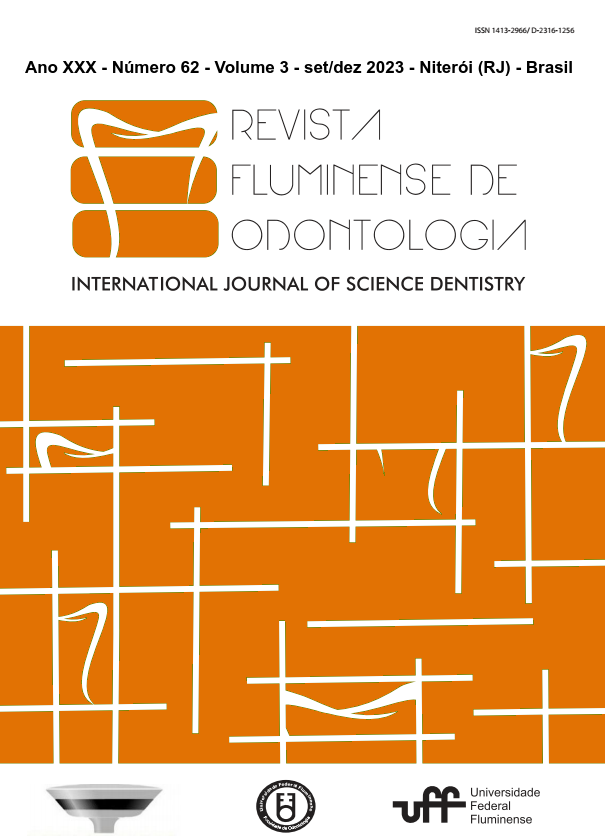CUIDADO EM SAÚDE BUCAL PARA PACIENTES QUE UTILIZAM ANTIRREABSORTIVOS ÓSSEOS
DOI:
https://doi.org/10.22409/ijosd.v3i62.57343Resumo
O cenário odontológico tem apresentado diversos casos de infecção odontogênica, inclusive com óbitos. Em linha com esses fatos, observa-se o aumento na prescrição de antirreabsortivos ósseos em Serviços de Saúde particulares e do SUS (Sistema Único de Saúde). Os bisfosfonatos injetáveis têm ação comprovadamente benéfica para o controle de metástases ósseas. Contudo, aponta-se a osteonecrose avascular no complexo bucomaxilofacial como um efeito adverso importante. Este tipo de alteração também foi reportado mediante o uso de antiangiogênicos e imunomoduladores. Esta revisão de literatura teve por objetivo delinear um protocolo que respalde a atuação dos Cirurgiões Dentistas Clínicos Gerais nas Unidades de Atenção Primária à Saúde do Município de Campinas-SP, diante da utilização frequente de antirreabsortivos ósseos e uma demanda reprimida por cuidados em Saúde Bucal que se apresenta com a retomada integral das atividades após o pico da pandemia de COVID-19. Com base no conhecimento científico sobre a osteonecrose associada a medicamentos, sugere-se que as equipes das Unidades de Atenção Primária à Saúde atuem de modo preventivo, proporcionando cuidado em Saúde Bucal preferencialmente antes do início do tratamento com antirreabsortivos. No entanto, para pacientes que já estão sob esta terapia e necessitam de intervenções odontológicas invasivas, recomenda-se uma abordagem multidisciplinar, entre Cirurgiões Dentistas da Atenção Primária e da Atenção Secundária, visando ao tratamento de possíveis complicações das intervenções invasivas de urgência. Ademais, pacientes sob uso de antirreabsortivos ósseos requerem monitoramento a longo prazo, para se evitar a necessidade de procedimentos odontológicos invasivos ou mesmo diagnosticar precocemente casos de osteonecrose.
Palavras chave: Osteonecrose Associada a Bisfosfonatos, Saúde Bucal, Sistema Único de Saúde.


